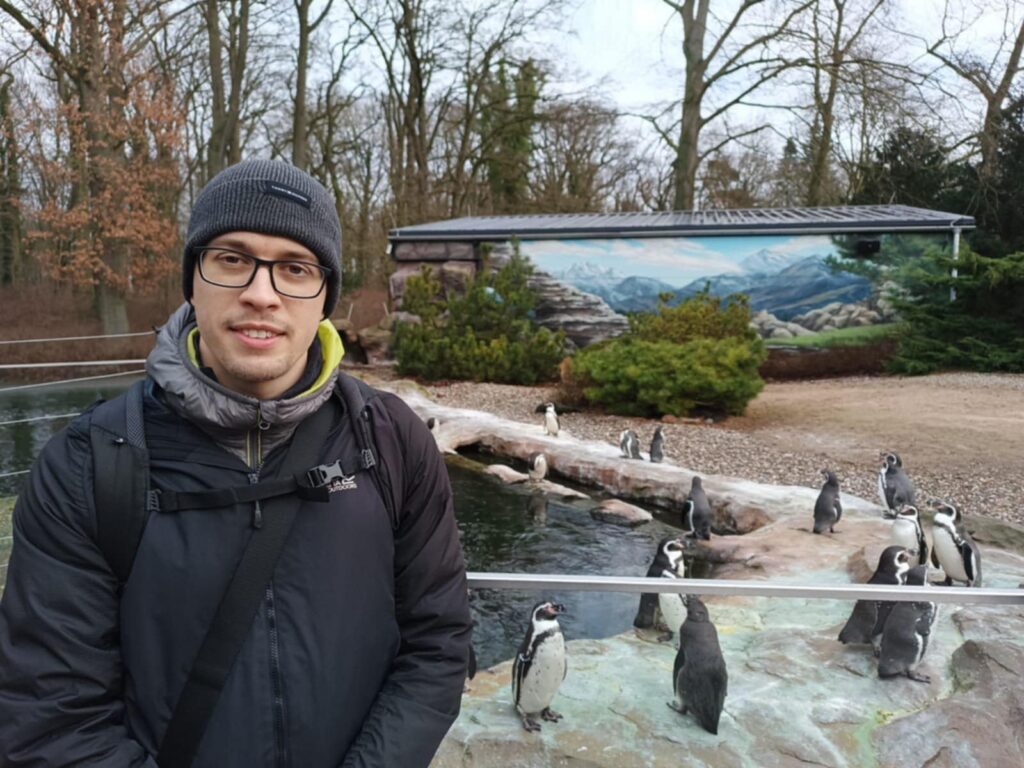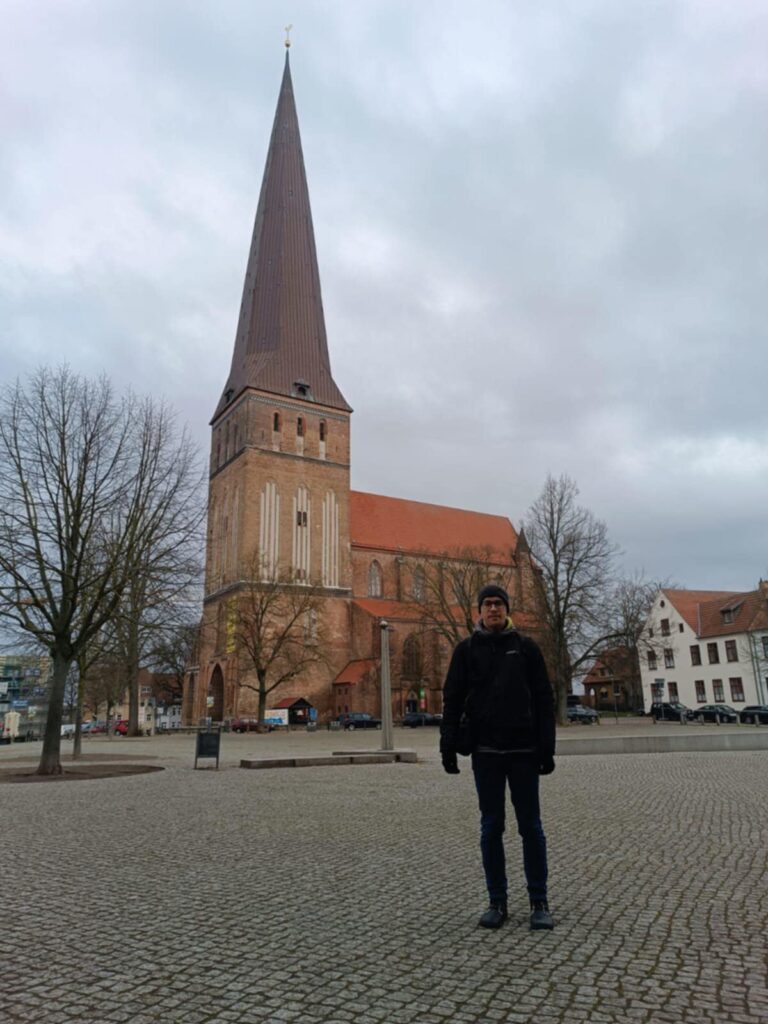Thanks to the TECHSCALE project, a PhD student gained experience at LIKAT
In the research group of Jagadeesh Rajenahally, who is, among others, the author of three publications in the journal Science, the materials chemist Vítězslav Hrubý completed a three-month doctoral internship this year. His trip to the prestigious Leibniz Institute for Catalysis (LIKAT) was made possible by the TECHSCALE project, led by Michal Otyepka from CATRIN. The young scientist and PhD student at the Faculty of Science of Palacký University focused on the development of sustainable materials for catalysis and tested fluorographene-based materials developed at CATRIN.
“I focused primarily on systems with anchored metal atoms for single-atom catalysis. I made use of the infrastructure at LIKAT, which enables reactions under high pressure. This was a new experience for me as we do not have such equipment at CATRIN,” said Hrubý. Although he initially went to Rostock with the plan to test materials prepared at CATRIN, he later began synthesizing additional single-atom catalysts. “I prepared a new material with iron atoms that showed promising activity, but it will need to be further optimized to improve its stability. It’s a long-term effort, but I hope that a joint publication will emerge from the project,” explained the doctoral student.





Besides the opportunity to work with unique infrastructure, he sees a huge benefit in establishing collaboration not only with Jagadeesh Rajenahally—who is among the global leaders in the field—but also with other colleagues. He also found it inspiring to observe a different approach to catalysis research that responds directly to the needs of the chemical and pharmaceutical industries.
“Often, the catalysts are custom-designed for specific reactions. Their approach is somewhat different, mostly based on the pyrolysis of organic molecules on a removable porous matrix. Then they conduct a careful screening of conditions and, thanks to sophisticated equipment, are capable of running up to eight high-pressure reactions simultaneously. The aim is to obtain the required information as quickly as possible; therefore, after analyzing the reaction mixture, everything becomes waste, including the tested catalyst. I often heard the saying there that chemical research produces two things—results and waste. That was also very educational and inspiring for me,” he added.
“I’m very pleased that the TECHSCALE project from the Johannes Amos Comenius Operational Programme enabled another student from Palacký University Olomouc to gain valuable experience abroad, acquire new skills, bring back valuable knowledge, establish connections with a prestigious institution, and contribute to strengthening international cooperation. I firmly believe that supporting the research and education of the young generation is one of the key benefits of this programme for the future development of the Czech Republic. I would also like to emphasize that the demanding interdisciplinary research with which we are pushing technologies beyond the nanoscale cannot be conducted in isolation. On the contrary, it is broad collaboration that allows us to progress more quickly and efficiently,” adds the student’s supervisor, Professor Michal Otyepka.
The young researcher now faces the completion of his academic duties and the defence of his dissertation. After that, however, he would like to continue the collaboration with his German colleagues and, as part of the TECHSCALE project’s mobility programme, return to work in their laboratories.

